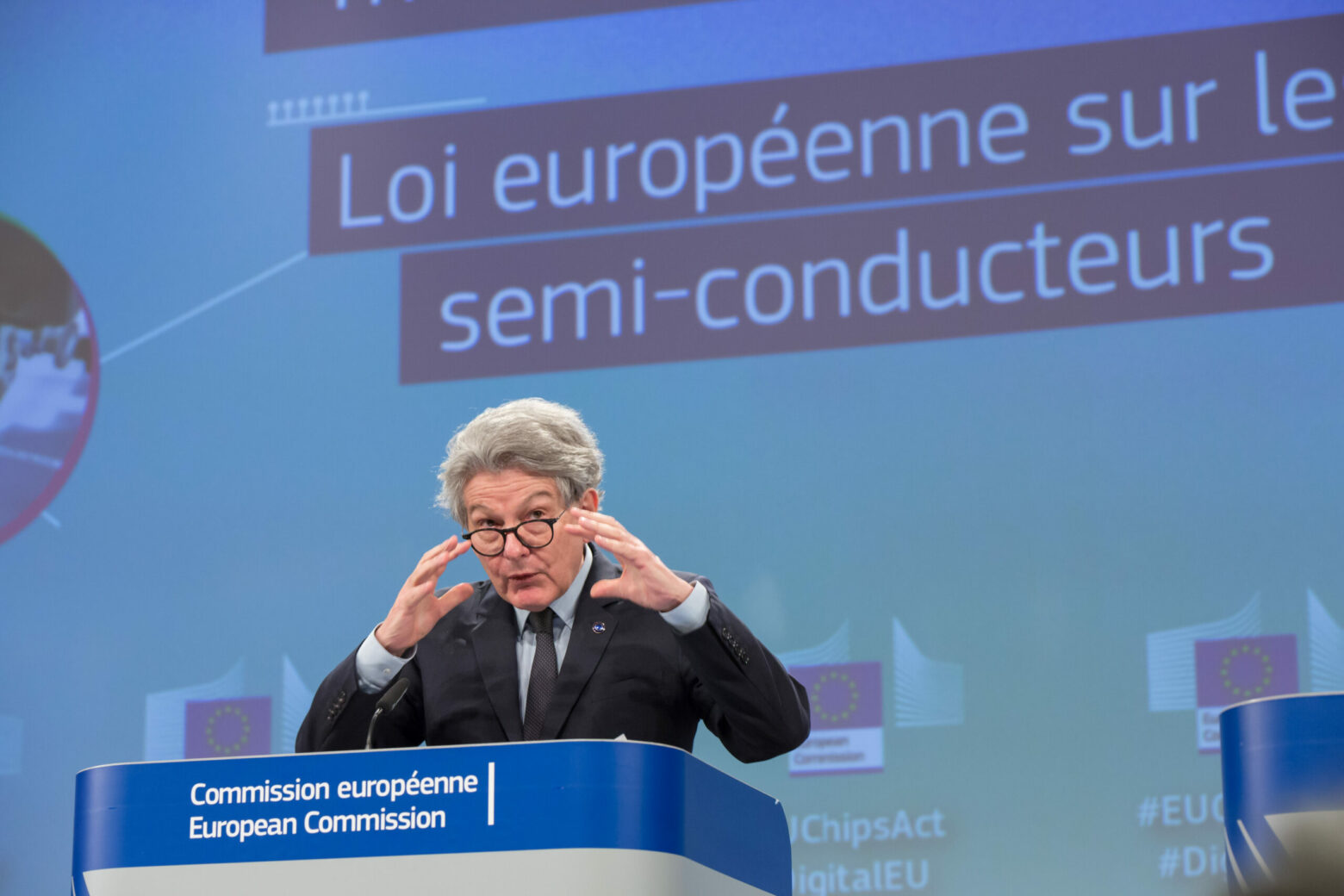Here is the EU plan on subsidies for green industries

Commissioner Breton has developed a response to Biden's Wrath: the Clean Tech Act, a plan of subsidies to European industry to encourage its green conversion. Here's who likes it and who doesn't
What will the EU do against Biden's Wrath?
The Commissioner for the Internal Market of the European Union, Thierry Breton, has drawn up a response plan to Joe Biden's Inflation Reduction Act , the 369 billion dollar law for the reinvigoration of US manufacturing in key sectors for ecological transitions and digital.
According to Brussels, the generous incentives contained in the IRA risk diverting European investments in critical technologies overseas, leaving the Old Continent without a production base for the industries of the future.
WHAT THE CLEAN TECH ACT CONSISTS OF
Breton's plan, called the Clean Tech Act, aims precisely at reducing Europe's competitive disadvantage compared to America, offering European companies subsidies to be used to finance the "green" conversion of their production processes, so as to put themselves in the conditions to compete with rival US firms.
In the Commissioner's intentions, POLITICO writes, the Clean Tech Act will serve to channel the funds from the twenty-seven member countries of the Union towards some European "industrial champions".
THE MOVE OF FRANCE
Breton's thinking is substantially the same as in his country of origin, France, which in fact has already announced a series of measures to encourage the return home of the most crucial sectors for the energy transition: "green hydrogen, electrolysis, production of electric batteries, nuclear energy and renewable energies,” French Economy Minister Bruno Le Maire said a few days ago.
WHO CONTESTS BRETON'S PLAN
However, Breton's "French-style" approach is not shared by all the members of the European Union, nor by all the officials of the Commission: the northern European countries most attentive to the protection of free trade, as well as the commissioners of liberal orientation – such as the Latvian Valdis Dombrovskis, in Commerce, and the Danish Margrethe Vestager, in Competition – view the idea of a massive state intervention in the economy with a certain skepticism.
Breton then began first of all to court those states with strong industrial bases – for example Spain and Poland – and which are therefore more frightened by the possibility of seeing their manufacturing swept away by higher energy prices and by Washington's subsidies.
TO GUARANTEE A LEVEL OF TERMS
Details on the Clean Tech Act are currently scarce: however, Commission President Ursula von der Leyen is expected to provide some next week, during the World Economic Forum in Davos.
Thierry Breton told POLITICO that the European Union needs “a coordinated response both with horizontal legislation responding to the IRA, a bit like we did with the Chips Act [the 43 billion euro plan to stimulate European microchip production, ed ], but this time for a European IRA”.
“Secondly, as far as funding is concerned,” continued the Commissioner, “we need to make sure that there is a level playing field for all EU countries in terms of access to funds” to subsidize key industries for the energy transition.
The question of equality is fundamental. In its absence, in fact, the risk is that national state aids will end up creating imbalances in competitiveness within the single European market: the largest member states with the greatest resources, such as Germany and France, will be able that is, to support their companies with sums well above the possibilities of other countries, such as Portugal or Greece.
WILL BRETON BE ABLE TO CONVINCE THE LIBERAL VESTAGER?
But perhaps the biggest obstacle for Breton will be to convince the Commissioner for Competition Margrethe Vestager, not so sure that the use of massive public aid to industry is a good idea: both because "competitiveness cannot be built with subsidies ”, he said, and because it would risk destabilizing the “precious” single market.
As POLITICO has noted, Vestager has thus far been the liberal counterweight to Breton's aggressive interventionism within the Commission. However, it seems to have softened its stance on subsidies recently, given the international context.
WHAT WILL CHANGE ON STATE AID (FRANCE AND GERMANY RUB THEIR HANDS?)
A portion of the European green industrial policy is already almost completed: this is the modification of the Community legislation on state aid, which the Commission should adopt by January and which will make it easier for member states to finance companies in difficulty with public money.
In 2022, Brussels approved 170 requests for emergency state aid, totaling $540.2 billion. The largest slices of this sum were distributed to just two countries: Germany, for almost half, and France, for just under 30 percent.
THE EUROPEAN SOVEREIGN FUND IS FAR AWAY
The vast subsidy plan announced months ago by von der Leyen, the European Sovereignty Fund, or European sovereign wealth fund, however, will probably not be ready before the summer. A Commission source told POLITICO it's "a nice idea," but "we don't have the money."
Breton – supported by the Commissioner for Economic Affairs Paolo Gentiloni – would like to exploit the existing funds contained in the RePowerEU, the plan to accelerate the energy detachment from Russia.
This is a machine translation from Italian language of a post published on Start Magazine at the URL https://www.startmag.it/economia/clean-tech-act-sussidi-industria-europea/ on Thu, 12 Jan 2023 09:51:35 +0000.
